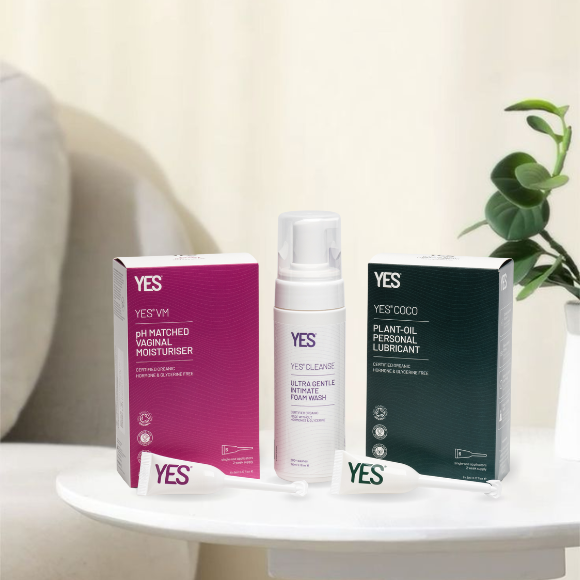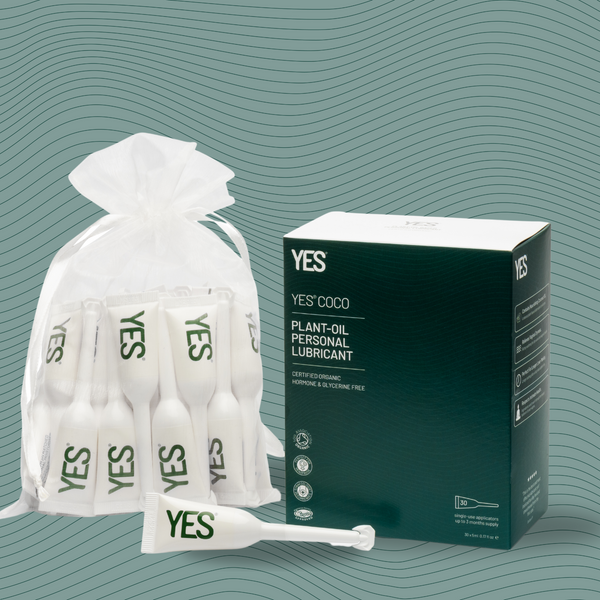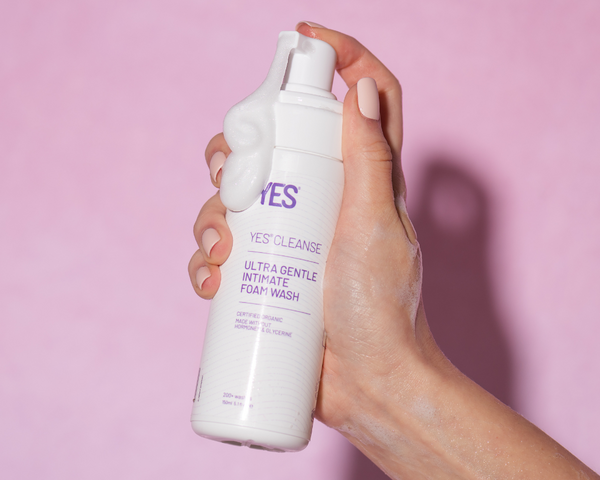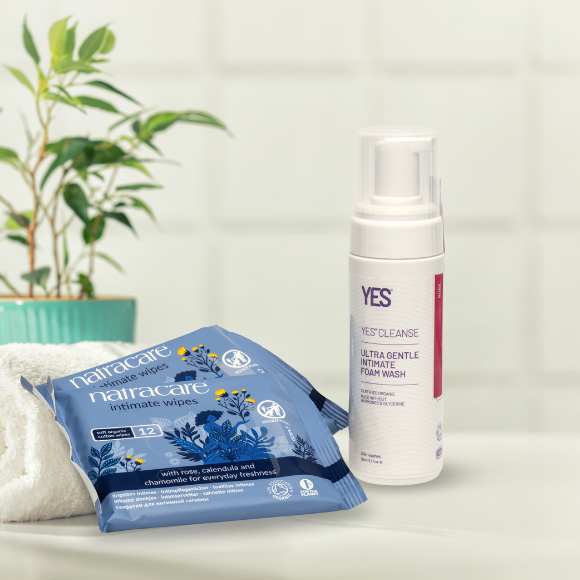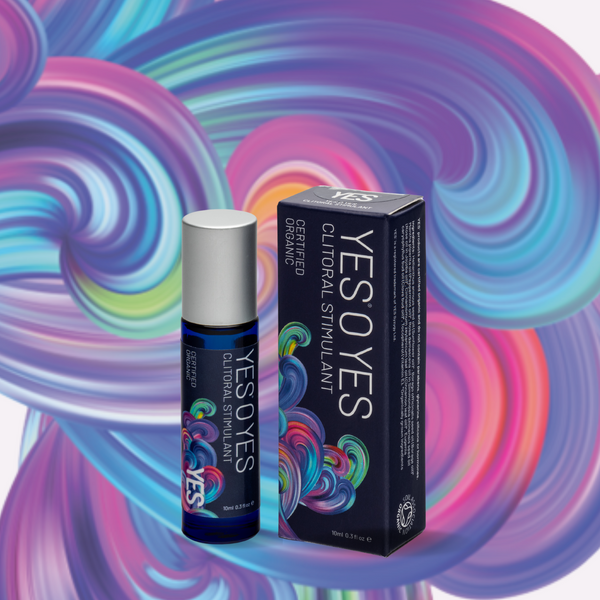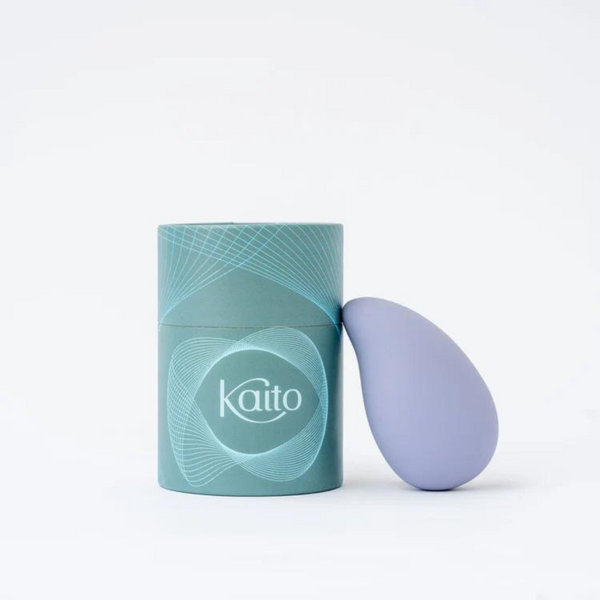 All Blogs
All Blogs
From work and family to fitness and self-care, there’s a lot to think about each day. It’s no surprise that most of us seem to be busier than ever before. No matter how busy you are, it’s important to stay on top of your personal hygiene regime, including taking care of your intimate health.
Although the vagina does a pretty good job of looking after itself, there are still steps you can take to give your intimate area the best possible care. Neglecting this can sometimes lead to unpleasant symptoms such as itching, odour, pain after sex, burning, or abnormal bleeding.
If you experience any of these symptoms, it’s important that you speak to your GP or another health professional so they can get to the bottom of the issue.
Here are our top tips for looking after your intimate area and what to avoid.
Recommended: Wash regularly
When it comes to caring for your intimate area, what you wash with matters. YES CLEANSE is formulated to gently cleanse the vulva without upsetting its natural pH balance or using harsh chemicals, making it a great alternative to soap or other less natural washes if you prefer to use more than water.

Avoid: Douching
While daily washing is encouraged, doctors and health care professionals do not recommend douching as part of your intimate care routine (1).
Why? Douching can change the natural balance of your vagina, and the bacteria that lives there.
Recommended: Use pH-balanced products
If you’d like to wash your intimate area, choose a gentle, pH-balanced cleanser designed for external use only — it helps support your vulval comfort and hygiene without disrupting your natural balance.
Look for products that have been specifically developed to clean your intimate area without causing any harm. Just make sure you keep the products away from internal areas!
Avoid: Wearing tight clothing
Many experts state that the key to a happy and healthy vagina is to avoid wearing tight clothes, in favour of breathable fabrics such as cotton.
Wearing tight clothes can reduce air circulation and lead to excessive sweating – which isn’t pretty or comfortable, right?
Increased moisture can create an environment where bacteria and yeast thrive, so it’s best to avoid wearing tight or non-breathable clothing — like synthetic fabrics, leather trousers, or wet swimsuits — for long periods of time.
Recommended: Stay hydrated
Did you know that what you drink can have an impact on your vagina’s health? Drinking lots of sugary drinks can affect the bacterial balance of your vagina, as can being dehydrated. So make sure you drink plenty of water throughout the day.
Recommended: Safe sex (and peeing after!)
According to gynaecologist Dr Shree Datta, after sex, the most important thing you can do is for for a wee. This especially important if you are print to urinary tract infections, as it helps to flush out the problematic bacteria that causes UTI’s from the urethra. (2)
It also goes without saying that, if you want to take care of your intimate area, you should always practice safe sex. Unprotected sex not only increases the risk of developing sexually transmitted infections such as chlamydia, gonorrhoea, warts and syphilis, but it can also cause vaginal infections.
There are plenty of vagina-friendly, feminine hygiene and sex products that will help you practice safe sex without irritating your intimate area, including lubricants and condoms!

Recommended: Menopausal moisturisers
During menopause, it’s not uncommon for women to experience increased levels of vaginal dryness. This is normal, and nothing to be ashamed of. To avoid irritation, try our vaginal moisturisers. These will provide smart moisture release, releasing moisture when your body needs it, to help to soothe any unpleasant symptoms that come hand-in-hand with vaginal dryness, including itching and burning.
Recommended: Maintain your vaginal health on the go
Another way to feel fresh when you’re out and about is by using gentle, pH-balanced intimate wipes. These can help you stay comfortable and confident, but they’re for external use only and don’t replace a healthy vaginal care routine.

Avoid: Wiping back to front
Always avoid wiping back to front. Wiping this way can allow potentially harmful bacteria from your bottom to get into your vagina, which can lead to uncomfortable infections and painful UTIs.
Recommended: Seek medical attention
If anything feels or looks different to what’s normal for you, then make sure you seek advice from a medical professional.
References:
- https://www.womenshealth.gov/a-z-topics/douching
- https://www.marieclaire.co.uk/life/health-fitness/vaginal-care-744224
Empower yourself
Read more about the changes your body goes through during peri menopause and post menopause.


